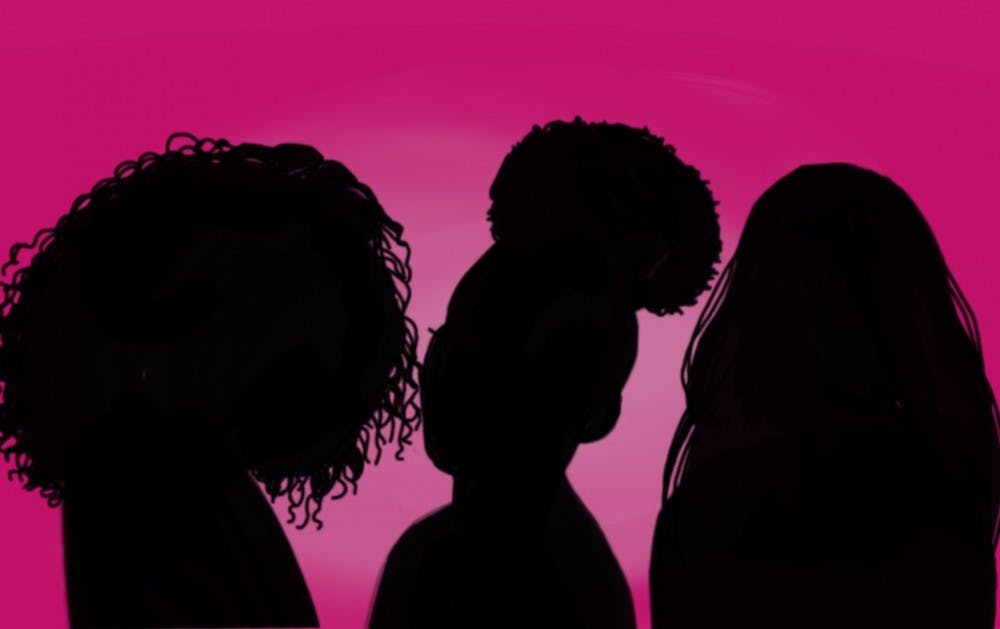Zaria, an ASU student organization established in 2013, relaunched this week with the goal of creating a community for women of color.
Zaria, named for a city in Nigeria, means blossoming flower. The club's symbol is a lotus, which is a flower that originates in the muddy ground of swamps. Despite this gloomy environment, the end of the growth process produces a beautiful flower.
Although the mission and goals of the organization remain unchanged, the logo "where black women blossom" was changed to "where black womxn blossom", the 'x' replacing the 'e' to use non-binary and inclusive language.
Ni'Sea Thurman-Wamubu, a freshman double majoring in photography and social justice, is the president of Zaria.
After attending a 10-day leadership training held by the Black African Coalition, Thurman relaunched Zaria after a recommendation from the BAC advisor.
At the first general body meeting on Nov. 27, members talked about their experiences as black women attending ASU, a predominately white institution, and how to grow Zaria as a community.
"As black women, we have a unique advantage and opportunity to teach others around us and have a voice," Thurman-Wamubu said. "We're all here going to school with a passion and story, and our voice is important. We all represent ASU."
Thurman-Wamubu is biracial and identifies as black. She grew up in Milwaukee, Wisconsin where she faced a lot of ignorance of race and culture.
"I've been made aware of my race since (I was) 4 years old. For an art project in elementary, my teacher told me that I can't color the angels brown," Thurman-Wamubu said. "I'm grateful for growing up where I did because I was given first-hand exposure to a lot of social injustice issues and see the importance of starting a community."
She said the goal of Zaria is to enable black women to feel empowered in different environments throughout all of ASU's campuses.
"We want to incorporate healing and growth because a lot of times these discussions open wounds and we aren't always aware of tools that can help our mental and emotional well-being," Thurman-Wamubu said.
J'Ana Massey, a freshman majoring in business communications, is the co-vice president of Zaria.
Massey is from Georgia, and said she experienced culture shock when she moved to Arizona due to a lack of diversity in the state.
Massey said black women face different issues than black men do.
"Black men's struggle gets highlighted much more in society and being a black woman, we are often raised to take on problems outside of our own," Massey said.
Massey said she overheard a racist comment while walking on the ASU campus.
"I was walking on campus, and two white guys were talking about a black girl at a party and describing her hair and butt. They made a joke about her lips and compared her to Donkey Kong," Massey said. "I looked back at them, and they said it again and started laughing."
Massey is passionate about film and wants to be a screenwriter, and the representation of black women in media is very important to her.
"I feel like people don't always support us or look at us in a positive way," Massey said. "Black women are often portrayed as ghetto or angry and as a film maker, I want to show the different representations of black women in a positive light."
Moon Berhane, a senior majoring in digital and integrated marketing, was previously a member of Zaria and plans to be involved in the re-launched organization.
"At times as a black women, you go through life and no one understands how you feel, but Zaria is a place where I know I'm not alone and it's comforting," Berhane said.
Berhane remembers discussing interracial dating at ASU with the previous Zaria organization.
"Sometimes we're just a fetish to people," Berhane said. "When men tell me I have the perfect skin tone or look exotic, it's a backhanded compliment. Last weekend, I went on a date with a white guy who said I had the perfect skin tone, and he wouldn't date anyone darker. This made me so angry and disgusted."
Berhane has also experienced prejudice at ASU. "One time, this kid asked me how I afford to pay for school. He said 'you must play sports,'" she said.
Danielle Embry-Clark, a freshman majoring in psychology, is the secretary for Zaria.
"Community, for me, means people who give back to those who are less fortunate and make their community feel more like a home and a family. It's about a sense of unity," Embry-Clark said.
With the goal of fostering unity and empowerment for women of color, Zaria will continue to hold meetings next semester.
"When I think of being a black woman, I think of strength and resilience. I think of holding myself to a higher standard as a leader," Embry-Clark said. "Zaria can shape the ASU community by promoting a sense of self for black women."
Reach the reporter at mdhunte2@asu.edu or follow @masaihuntertv on Twitter.
Like The State Press on Facebook and follow @statepress on Twitter.




